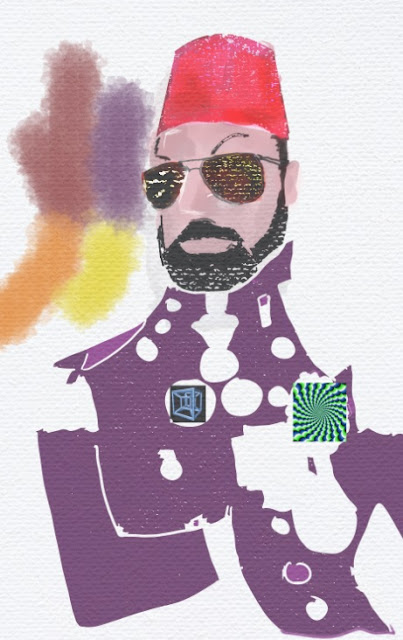Cloning Saint Peter
I Kneeled Down to Pray but Ended Up Trying to Clone Saint Peter.
I am a person who believes in the Gods. It's not easy in a world filled with monotheists. Instead, I am a pantheist. I think all religions have interesting and positive ideas about God, but none of them are 100% correct. None of them have the market cornered. We, as a civilization, haven't unraveled the mysteries of existence or answered the big questions: Was there a creator? What is consciousness? What happens when we die (if anything)? I've tried many ways to codify the worldview that all Gods should have a seat at the "Creator" table. It remains a work in progress.
How can we ignore centuries of faith spanning millions of people just because theistic Darwinism left their traditions in the dust or monotheism erased them? Ra has a place at my table, as do Zeus and Odin. Shiva, Vishnu, Krishna, and Buddha are all welcome. If your believers are a mere dozen in the hidden jungles of the Amazon, or if they number in the billions and are still growing, come and tell me your story. Because I believe that we are all telling the same story, and it is the variation in the details that is the magic of creation. Unlike most people, however, I am certain my God exists. It is not a question of if they are real or not, it's what they're capable of.
When I kneel down to pray, I speak to my God (Quetzoquaddle) in only two ways. It has come down to this: "Thank you very much" or "Please help." More often than not, I try to give thanks. Even in my deepest hardship, I am eternally grateful for my family, friends, and the many opportunities I have been given. But sometimes, I also need help and have nowhere else to turn but to my God. I was kneeling down to pray, but my thought process derailed.
As I whispered my simple "Help, help, help, oh please please help" to Quetzoquaddle, a thought emerged, unbidden and electrifying: the Catholic Church’s near-obsessive reverence for relics. Bones, shrouds, and splinters of the True Cross are preserved in ornate reliquaries and housed within the grandest cathedrals—artifacts not merely of history but of faith. Tangible proof, they claim, of divine presence. Yet, in all this reverence, have they not overlooked the most powerful revelation of all?
If faith has preserved the bones of apostles, if relics from those who walked alongside Christ remain accessible, why has no one considered the potential locked within their very cells? Apostles who bore witness to miracles, who touched the living, reborn Christ—if any mortal might carry within them the essence of divinity, would it not be them? The Catholic Church holds entire collections of sanctified remains, from the skull of Saint Peter in the Vatican to the myriad finger bones and splinters of the Twelve scattered across the globe.
This is where my faith collides with science, where my prayers become a thought experiment bordering on heresy. What if we could extract DNA from these relics? What if modern cloning technology could bring them back?
The implications are staggering. If the soul exists, would it find its way back to its original form? Or would these clones be empty husks, biologically identical but spiritually void? Could epigenetic memory—the faint echoes of lived experience imprinted upon our very genes—carry over? Would a cloned Saint Peter retain even the vaguest recollections of his time walking beside the Son of God? Would a cloned Thomas still doubt? Would a cloned Judas once again betray?
The Church has long declared that the soul is unique, placed within the body at conception by the divine. But what if that assumption is flawed? What if the soul is something encoded, not delivered? And if we could retrieve an apostle, if we could resurrect one who witnessed the resurrected, what then? What would they tell us? Would they affirm the Gospels or reveal the inconvenient truths of history? Would they bear the burden of faith reborn, or shatter it entirely?
Perhaps this is why relics remain locked away, venerated but never probed. Perhaps the Vatican itself knows the risk of unlocking what remains hidden. But if faith is truth, if faith can withstand the weight of evidence, then what fear should there be?
I kneeled down to pray, but instead, I found myself seeking apostles in the dust of centuries, imagining a world where science does not destroy faith but breathes new life into it. Where the Saints rise again, not by divine intervention, but by human hands reaching toward the controls of existence itself.
Q




Comments